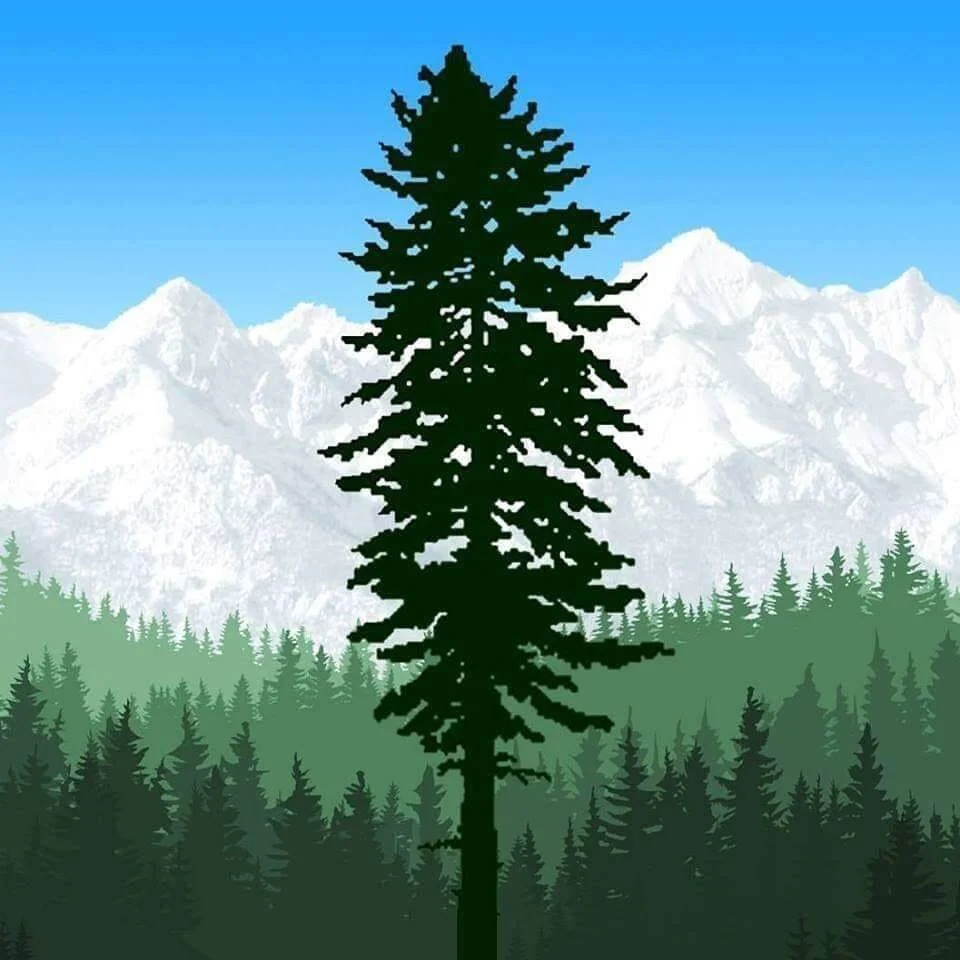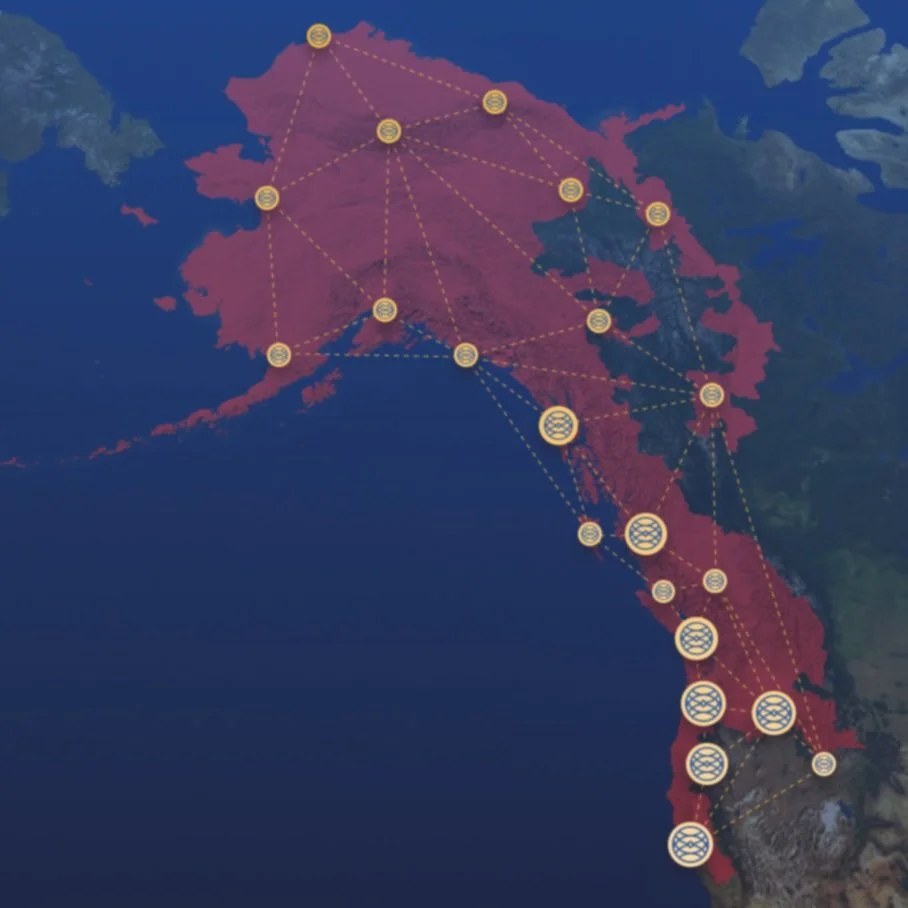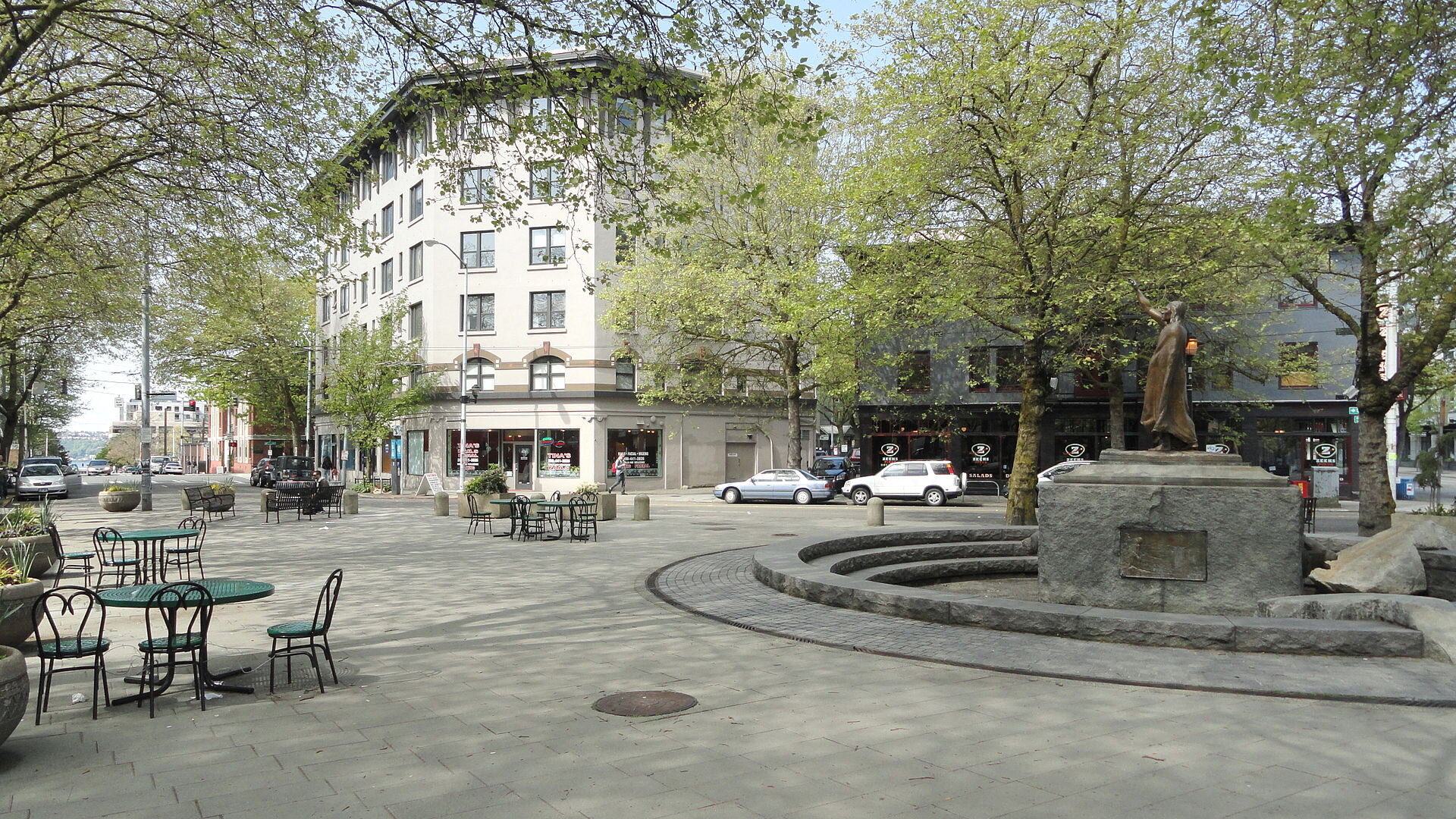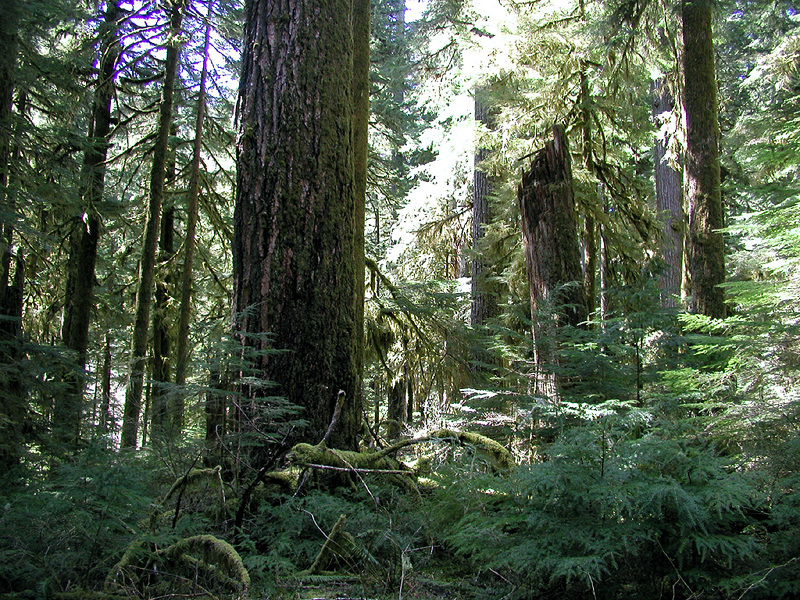TILLIKUM
[TIL'-i-kum] or [TIL'-LI-kum] — noun.
Meaning: Person; people; relative; relation; family; kin; kindred; ally; fellow; associate; folk; tribe; nation; population;
Origin: From Chinookan stems -lkh 'ground, earth' + t- 'plural' > Chinook tilikhum ‘people’
Commonly spelled “tillicum”, and sometimes pluralized in the English style as ‘tillikums”, the word means means “person” or “people,” and often has the connotation of a friend or relative, but has also come to signify a friend or ally. It usually means those who are not a “tyee” (chief), but rather common people, and can refer to any people and can be used to signify one’s social group, band, tribe, or even nation.
It can be used to describe one’s "ahnkuttie tillikums" (ancestors; ancient people), “cultus tilikum” (ordinary people; insignificant people; nobodies), or just "konaway tillikum" (everyone; everybody; humankind), be it "nesika tillikums" (our people) or "yaka tillikum" (their people).
“Klahowya tillikum” (hello, people; greetings, my friends/family) is a standard greeting in Chinook Wawa, and serves as a good way to address people you see in your “tillikum mitlite wake siah” (neighborhood), or even say to a "huloima tillikum" (stranger; foreigner; people of a different group) which one might encounter in a large "hiyu tillikum" (a crowd; a gathering; a throng). Of course if you just wanted to get the attention of a person or a group of people, you could simply shout "nah tillikums!" (hark people!).
Regarding other group activities, gathering with a group of friends to celebrate a “ahnkuttie tillikums klaska wawa” (tradition) makes for a good time, as does cheering for the “tillikum yaka tolo” (victor) of a game.
Conversely, people can take soluce by sharing "ahnkuttie tillikums yiem wawa" (tales spoken by the ancient people) during a “mahsh memaloose tillikum kopa memaloose Illahee” (funeral)
Anticipating "hiyu tillikums kopa house" (an audience), one might ask "kunsih tillikum mitlite?" (how many people are there?), and hopefully not hear “wake tilikum” (nobody).
Politicians often pass measures that are either “kloshe kopa hiyu tillikums” (popular) or “konaway tillikums halo ticky kahkwa” (unpopular) with the “kloshe kopa konaway tillikums” (public). Of course, someone with a position like the “tillikum yaka kloshe nanitch dolla” (treasurer) should try to remain “cultus kopa huloima tillikums (independent)
While many uses of the word describe "kahkwa tillikum" (friendly) relations, it is also used for a number of interpersonal conflicts; transients might be labeled “cultus tilikum” (vagabond), and group gathering might be divisively labeled “cultus tillikums” (rabble) or "solleks tillikum" (a mob).
During a war, a “pight tilikum” (warrior) would fight against the “solleks tilikum” (enemy), though sometimes this term would also be used as a substitute for “mesachie tilikum” (rascal; villain; sinner), the most heinous being labeled “hyas mesachie tilikum” (outlaw), who might quickly find themselves “halo tilikum” (friendless) or even a “tillikum kopa skookum house” (prisoner).
Spelled either as tillicum or tillikum, the word is a commonplace name across Cascadia:
A Tillicum Creek can be found near Huckleberry Mountain, Quartz Creek Butte, and Orwig Hump in Washington, as well as Chumstick Mountain and near Huron, Oregon.
Tillicum Beach located near both Yachats, Oregon and Langley, Washington, and a Tillicum Street exists in both Seattle and Vancouver.
There is a Tillicum Elementary School in both Steilacoom, Washington and Victoria, British Columbia, as well as a Tillicum Middle School located in Bellevue, Washington and a Tillicum Junior High School in Issaquah, Washington.
Tillicum station is a planned commuter rail station in Lakewood, Washington, in the historic Tillicum neighborhood, and scheduled to open in 2036 as an extension of the Sounder South Line from Lakewood station via the Point Defiance Bypass. The station would be located in the Tillicum neighborhood, near the intersection of Interstate 5 and Berkeley Street Southwest, adjacent to Joint Base Lewis–McChord.
Tilikum Crossing (also known as Bridge of the People) is a cable-stayed bridge across the Willamette River in Portland, Oregon. It was designed by TriMet, the Portland metropolitan area's regional transit authority, for its MAX Orange Line light rail passenger trains. The bridge also serves city buses and the Portland Streetcar, as well as bicycles, pedestrians, and emergency vehicles. Private cars and trucks are not permitted on the bridge. It is the first major bridge in the U.S. that was designed to allow access to transit vehicles, cyclists, and pedestrians but not cars.
Statue of Chief Seattle overlooking Tilikum Place. Cedar Street is in the background.
Tilikum Place is a small triangular plaza in the Belltown neighborhood of downtown Seattle, Washington which at the intersection of 5th Avenue, Cedar Street, and Denny Way, and features a life-size statue of Chief Seattle by local sculptor James Wehn.
Blake Island is believed to be the birthplace of Chief Si'ahl.
Tillicum Village on Blake Island, accessible from Seattle by ferry, is a famous visitor attraction that offers a Cascadian First Nation’s equivalent of a luau, complete with a stage show, for the hungry tourist. Bill Hewitt, a local restaurant owner, founded Tillicum Village in 1962, the year of the Seattle World's Fair. The Hewitt family operated it until selling it to Argosy Cruises, the operator of the Tillicum Excursion, in 2009. For 18 years, the show was Dance on the Wind, focusing on dances of the First Nations of British Columbia, provided by Thompson's, a locally based theatrical production company.
Tillicum Centre is a large shopping mall along Tillicum Road in Victoria, British Columbia.
The MV Tillikum, the sole remaining Evergreen State-class ferry operated by Washington State Ferries which since the retirement of her sister Klahowya in 2017, she has been serving primarily as the San Juan Inter-island vessel.
The CFAV Tillicum (YTM 555) is a 140-ton harbour tug of the Queen`s Harbour Master, stationed at CFB Esquimalt, on Vancouver Island.
The 1971 single "Tillicum", is a song performed by Canadian electronic music group Syrinx.
Tilikum (1981-2017), was a bull orca, enslaved by SeaWorld Orlando, that had been involved in the deaths of three of the park personnel.
Trillium ovatum var. Tillicum, is a variant of T. ovatum, a small flowering plant native to Cascadia.






























